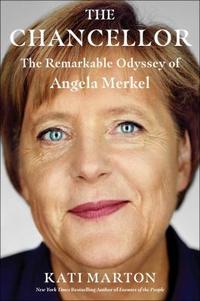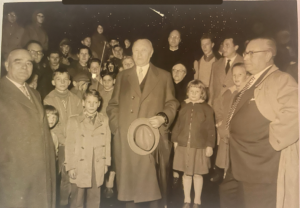 Kirkus Reviews: A glowing biography of the famously cautious yet effective chancellor of Germany.
Kirkus Reviews: A glowing biography of the famously cautious yet effective chancellor of Germany.
Marton, A Hungarian-born American foreign correspondent, clearly admires Angela Merkel (b. 1954), who has served as chancellor since 2005 and was hailed in a 2020 Pew Research poll as “the world’s most trusted leader, regardless of gender.” The author marvels especially at Merkel’s early years in East Germany, where her pastor father joined the call to serve the socialist East by moving his family from Hamburg to the rural hamlet of Templin, in the heart of the Soviet-occupied Democratic Republic of Germany. Indoctrinated in school, sealed off from the West by border walls in 1961, and spied on by her neighbors for the state security police, Merkel toed the line and kept a low profile while excelling at physics, first in Leipzig and then in East Berlin. With the fall of the Berlin Wall in 1989, she embraced a new profession: politics. When the East German DA party merged with the West German CDU, she became the mentee of the powerful Helmut Kohl. Working her way steadily up the ranks, Merkel ultimately assumed leadership of her party after Kohl left office. Unglamorous by choice, workmanlike to a fault, and used to sidestepping male egos, Merkel proved herself to be a deft civil servant and leader, especially in opening Germany’s borders to refugees in 2015 despite the backlash. “Her political rise,” writes Marton, “would be fueled by self-control, strategic thinking, and, when necessary, passive aggression.” Merkel’s determination to bolster Europe’s cohesion with French president Emmanuel Macron’s help and to strengthen ties between Europe and the U.S., despite opposition and/or apathy from the Trump administration, form her lasting legacy. Though the text is somewhat short on criticism, Marton clearly knows her subject and writes smoothly, pulling back the curtain on an enigmatic, significant world figure.
A human portrait more than a political one that amply captures the essence of a moral, determined leader.
 Thank you all for including me in such learned conversation! It shows your knowledge and your affinity to my Heimat (word is explained in the book), and I am truly moved!
Thank you all for including me in such learned conversation! It shows your knowledge and your affinity to my Heimat (word is explained in the book), and I am truly moved!